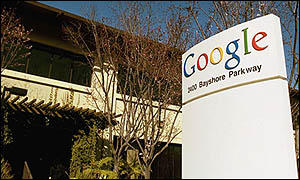Webmasters seek to unlock search engine secrets

MOUNTAIN VIEW, Calif. - Free-flowing beer, live music, karaoke and arcade games kept the party raging at the Googleplex the other night, but the real action was unfolding inside a sterile conference room at Google Inc.'s headquarters.
That's where the cunning Internet entrepreneurs who constantly try to manipulate Google's search engine results for a competitive edge were trying to make the most of a rare opportunity to match wits face-to-face with the company's top engineers.
Google's code-talking experts, despite putting on a show of being helpful, weren't about to reveal their "secret sauce" - Google's tightly guarded formula for ranking Web sites.
But that didn't zap the energy from the "Google Dance" - an annual summer party that's become a metaphor for the behind-the-scenes twists and turns that can cause Web sites to rise and fall in Google's search results.
For the millions of Web sites without a well-known domain name, those rankings can mean the difference between success or failure because Google's search engine drives so much of the Internet's traffic.
"Being on the first page of Google's results is like gold," said Web site consultant Gordon Liametz, one of the roughly 2,000 guests at this year's party, held earlier this month at Google's colorful corporate campus.
The Web site administrators, known as webmasters, and their consultants paid particularly close attention to Google engineer Matt Cutts, the company's main liaison with the webmaster community and this party's star attraction.
"That's the Mick Jagger of search!" exclaimed e-marketing strategist Seth Wilde as he strolled by Cutts and his audience of webmasters.
Cutts, who has worked at Google for five years, sees it differently.
"I feel more like the Rick Moranis of search because I end up dealing with so many quirky and weird cases," he said.
With so much at stake, low-ranked Web sites spend much time and money trying to elevate their standing, even if they must resort to deception.
The tactics include "keyword stuffing" - peppering a Web page with phrases associated with a specific topic such as "laptop computers" in hopes of duping the software "spiders" that troll the Internet to feed Google's growing search index.
It's a risky strategy because Google and other search engines penalize Web sites that get caught gratuitously repeating the same word. In the worst cases, the offending Web sites are deleted from the index so they don't show up in search results at all.
Read more...







<< Home